In the year of 2023, humanity left an undeniable mark on the world, sculpting the very surface of our planet in ways both profound and devastating. From drafting treaties to protect our international waters to grappling with the irreversible loss of species, the year unfolded as a progressive and remorseful canvas where our actions reshaped the contours of our existence. As we navigated the complexities of an increasingly hotter climate we celebrated monumental strides in global health.
We also confronted the harsh realities of human-induced conflicts on Heritage sites in Ukraine. Whether we celebrated or cried 2023 proved to be a chapter of contrasts. Embark on a thoughtful journey as we explore the significant changes and subtle details that shaped how humans, as creators of our fate, continued to shape the fabric of our shared world.

Humans Actually Decreased Fossil-Fuel Dependency
2023 emerged as a pivotal chapter in the journey of electric vehicles (EVs). The profound impact of EVs on the global energy panorama is now undeniable. These sleek, eco-friendly machines are carving a substantial dent in the once-impenetrable fortress of global oil consumption. According to the latest insights from BloombergNEF, the current year sees EVs orchestrating a reduction of approximately 1.8 million barrels per day in global oil demand, constituting an impressive 2% of the world’s total oil supply. This heralds a paradigm shift away from conventional fossil fuels, with analysts prophesying that by 2035, EVs could displace a staggering 12.4 million barrels of oil per day.
Despite initial concerns about waning consumer interest, particularly in the United States, where whispers of EV discounts and perceived obstacles circulated, the reality stands in stark contrast. Throughout the year, EV sales have not only weathered the storm but have surged ahead. Recent market research from Rho Motion reveals a remarkable 20% increase in global sales of EVs and plug-in hybrids as of November, a testament to the resilience and strength of the EV market. This surge is particularly evident in North America and China, underscoring the global nature of the EV revolution. As the world races toward sustainable mobility, this robust growth in EV adoption emerges as a linchpin in achieving climate goals, aligning seamlessly with the ambitious 1.5°C global warming limit set by the Paris Agreement, as recognized by the venerable World Resources Institute.
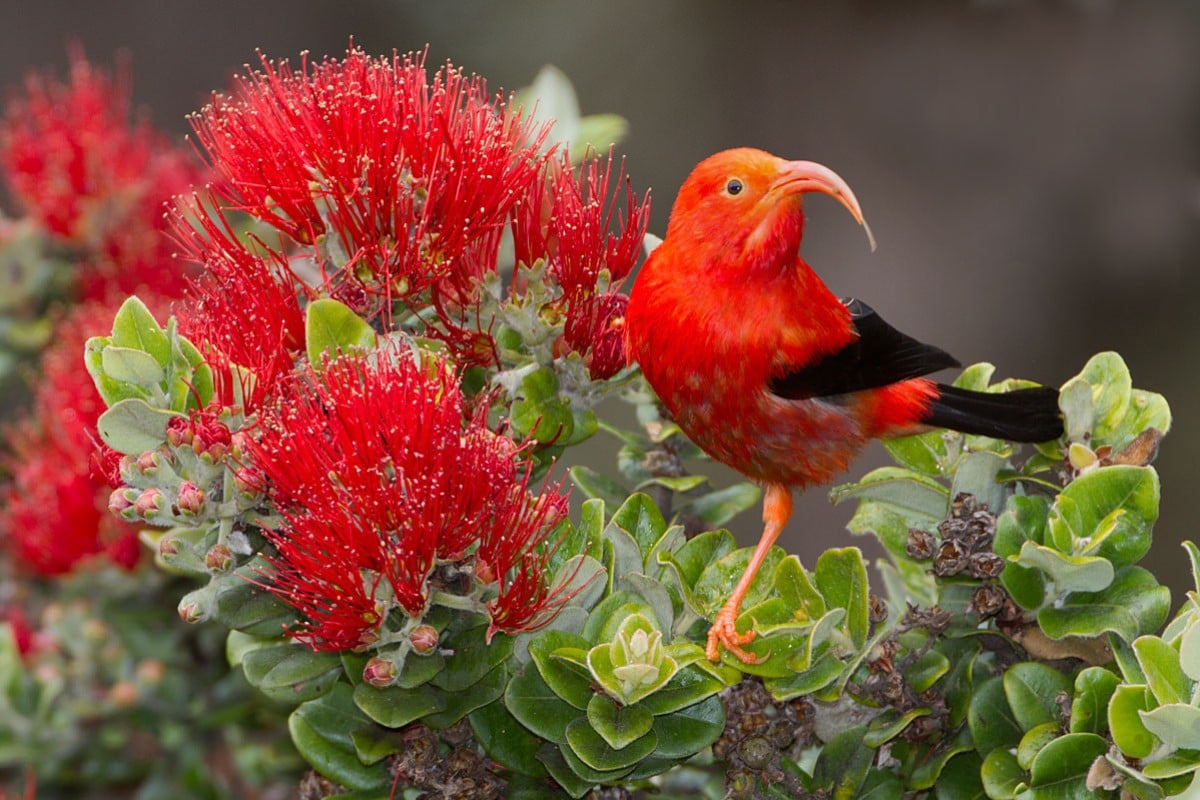
Eight Hawaiian Birds Now Officially Extinct
In a somber twist of fate, 2023 has unveiled a chapter in human history where our influence on the natural world takes center stage. The U.S. Fish and Wildlife Service announcement, echoing through the spheres of conservation, marks the official declaration of the extinction of eight Hawaiian bird species; the Kauai akialoa, Kauai nukupuu, Kauaʻi ʻōʻō, Large Kauai thrush, Maui ākepa, Maui nukupuʻu, Molokai creeper, and Po`ouli. This revelation casts a shadow over our stewardship of the environment, prompting reflection on the efficacy of conservation efforts and the urgency for proactive strategies. President Michael J. Parr of the American Bird Conservancy lamented the irreversible loss, underscoring the missed opportunities for protection and recovery under the Endangered Species Act.
Hawaii, once celebrated as a paradise for avian diversity, now grapples with the disheartening title of the bird extinction capital of the world. Even so, action is being done as a glimmer of hope emerges. The Birds, Not Mosquitoes program spearheaded by ABC unveils an innovative strategy to disrupt the breeding cycle of invasive mosquitoes threatening native bird populations. As we navigate this critical juncture, conservationists advocate for renewed commitment, urging timely and robust ESA protections to ensure a different outcome for endangered species.

A Shift Toward Less Violence
In 2023 humans have significantly reshaped the world by contributing to a notable reduction in violent crime rates, as outlined in the FBI’s October report. The substantial 23% decline in violent crime from 2002 to 2022 and a surprising 2% reduction in the past year alone mark a pivotal shift in societal dynamics. These statistics serve as a testament to the collective efforts of communities, law enforcement, and various stakeholders in fostering a safer environment. The impact of this positive trend is most striking in major urban centers, exemplified by the iconic New York City. Widely criticized for its perceived high crime rates, the metropolis has defied expectations by witnessing substantial decreases in various categories of violent crime.
The impact is particularly pronounced in major urban centers like New York City, where significant drops in murders, burglaries, shootings, and hate crimes showcase a marked improvement in public safety. From a remarkable 26.7% drop in murders compared to the previous year to significant reductions in burglaries (22%), shootings (8%), and hate crimes (9%), the city’s turnaround reflects a collective commitment to enhancing public safety. Notably, the overall 49% decrease in violent crime since its peak in 1991 underscores the resilience and adaptability of societies in the face of challenges, contributing to a world that is progressively safer and more secure.
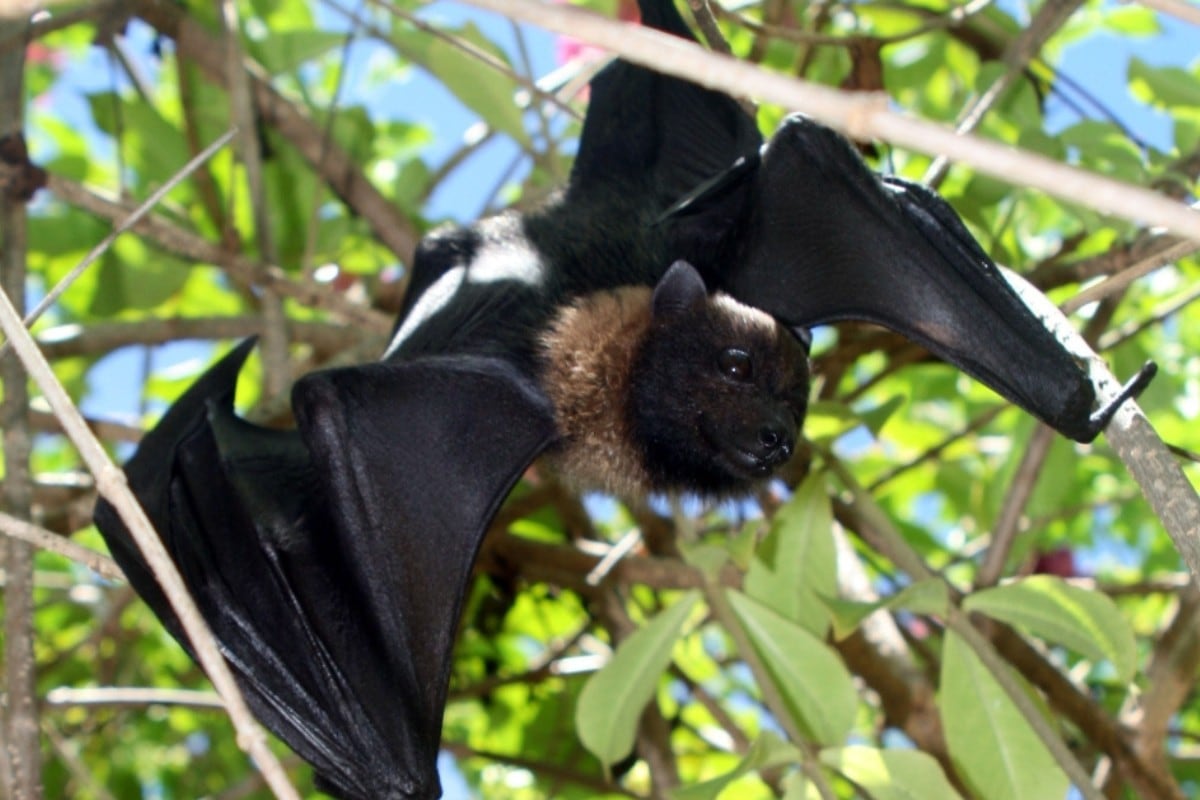
Bat Native To Guam Declared Extinct
The year 2023 has etched a poignant chapter ever-evolving saga of human interaction with the planet. This year revealed the profound consequences of our actions on global biodiversity. A significant stride in this narrative unfolded in the United States, serving as a poignant reminder of the pressing need for unwavering commitment to environmental stewardship. Danielle Kessler, the US Director of the International Fund for Animal Welfare, sounded the alarm on the escalating threat of extinction looming over imperiled species. The pivotal move of delisting 21 species from the protective mantle of the Endangered Species Act sent shockwaves through the environmental community.
This decision wasn’t merely a bureaucratic maneuver; it revealed the grim reality faced by these species, some of which haven’t been sighted in the wild since the 1960s. Among the casualties of this ecological reckoning was the little Mariana fruit bat, a mammal native to Guam and the Mariana Islands. Despite ESA protection since 1984, the bat succumbed to an onslaught of challenges, from poaching to the devastating impacts of volcanic eruptions and increasingly severe typhoons. These stories unveil the intricate tapestry of human impact on the environment, urging us to introspect and re-calibrate our relationship with the natural world.

Peace In The High Seas
In 2023, humanity took significant strides toward global environmental stewardship with the adoption of the High Seas treaty, marking a pivotal moment in ocean conservation. The vast expanses of the world’s oceans, comprising two-thirds of the planet, had long been a realm beyond national jurisdictions, presenting a challenge to biodiversity preservation as it faced the threats of overfishing, ship pollution, and seabed mining. This lawless expanse, known as the High Seas, serves as a vital contributor to planetary health by absorbing heat and CO2 emissions while sustaining the global ocean economy.The ratification of the Biodiversity Beyond National Jurisdiction treaty in 2023, as part of the High Seas treaty, holds profound implications for the future of our planet.
The turning point arrived on June 19 when the United Nations officially ratified the Biodiversity Beyond National Jurisdiction treaty. This groundbreaking agreement not only marks an end to the free-for-all exploitation of international waters but also establishes a legal framework for the creation of extensive marine protected areas. For the first time, the High Seas treaty provides a robust foundation for the implementation of large-scale conservation efforts. Moreover, the High Seas treaty aligns with the broader global objective of safeguarding 30% of the Earth’s land and sea by 2030, emphasizing its pivotal role in fostering sustainability and paving the way for a more secure and resilient future for our oceans and the entire planet.
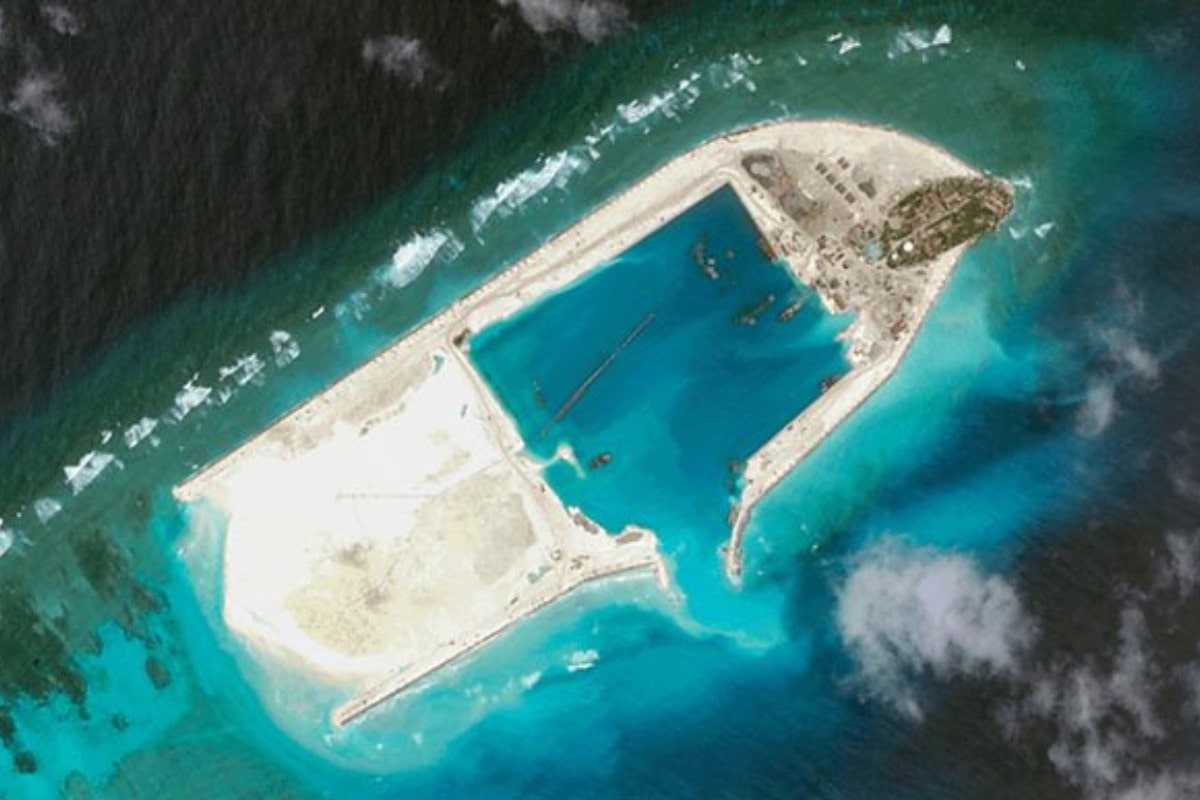
Vietnam Destroyed Coral Reefs To Expand Land
In global geopolitics, 2023 witnessed a profound metamorphosis, with one standout being the astonishing expansion of Pearson Reef in the South China Sea. Formerly a mere blip on the radar of the Spratly Islands, Pearson Reef underwent a remarkable makeover, courtesy of Vietnam’s bold land-building project that commenced in 2021. Through meticulous dredging and landfilling, this atoll has burgeoned into a sprawling 163-acre haven, complete with a sheltered harbor – a feat captured vividly in an awe-inspiring satellite image from August 2023. Vietnam’s ambitious endeavors extend beyond Pearson Reef, marking a strategic land-building spree across the contested Spratly Islands.
The year 2023 saw the nation expanding its territorial footprint by an additional 330 acres on five new island outposts, according to reports from the Centre for Strategic International Studies’ Asia Maritime Transparency Initiative. This surge in activity has intensified longstanding territorial disputes involving regional heavyweights like China, the Philippines, and Taiwan. However, this transformation is not without its concerns. Environmental watchdogs, alarmed by the rapid pace of island-building in the South China Sea, have reported the loss of 6,200 acres of coral reefs over the past decade. As the world grapples with the repercussions of such changes, the unfolding saga of Pearson Reef and its counterparts offers a glimpse into the dynamic ways in which human actions continue to reshape the global landscape.

A Major Win For Indigenous Rights
A transformative moment changed the tides in 2023, Brazil’s Supreme Court delivered a landmark decision bolstering the rights of Indigenous communities. Brazil’s Supreme Court’s landmark decision in 2023, rejecting a 1988 deadline for Indigenous claims, not only secures constitutional protection for ancestral lands but also establishes a global precedent for safeguarding Indigenous rights. The pivotal ruling emerged from a legal battle initiated by Santa Catarina state, backed by farmers, seeking to limit an Indigenous group’s territorial expansion. Most justices rejected a contentious argument that Indigenous claims should have been settled by a specified date in 1988. The ruling, celebrated with traditional dances and heartfelt tears in Brasilia, not only secures constitutional protection for ancestral lands but sets a precedent for future legal battles, shaping the narrative of how societies protect Indigenous rights.
The triumph, although a beacon of progress, unveils an ongoing struggle. While the triumph marks significant progress, ongoing concerns about potential legislation compromising environmental protections emphasize the need for continued advocacy in the pursuit of a just and equitable world. As the decision resonates beyond the courtroom, it acts as a barrier against potential legislative threats, safeguarding territories from restrictive deadlines. Yet, concerns linger about the broader landscape, with the potential for legislation that could compromise environmental protections on Indigenous lands.
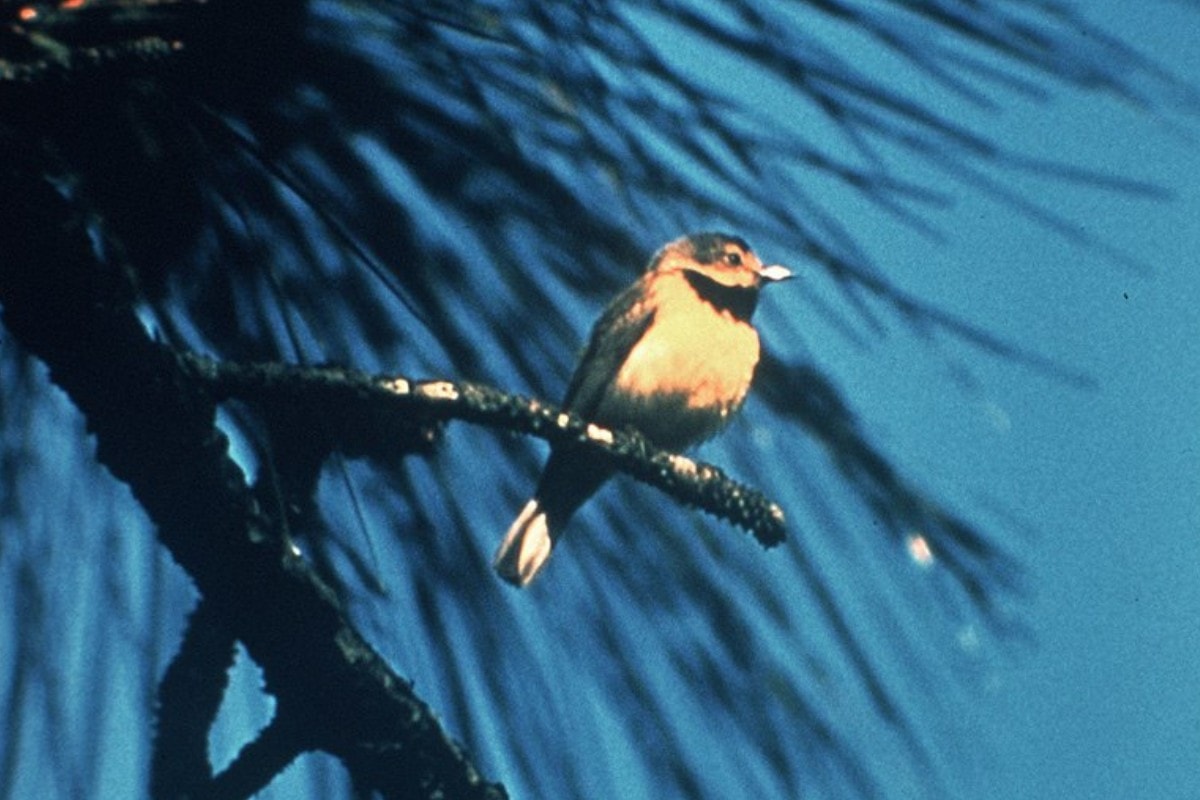
Rare U.S. Songbird Officially Extinct
In a sobering development, the U.S. Fish and Wildlife Service announced the probable extinction of the Bachman’s warbler, once among North America’s rarest songbirds. Identified by its distinctive bright yellow face and curved beak, this wood warbler species last migrated across Florida and wintered in Cuba in 1988. The image pictured above is the last known photo of the Bachman’s warbler, who was last seen in Long County, Georgia in 1975. The tragic fate of the Bachman’s warbler highlights the environmental consequences of human activities.
Historically, extensive habitat loss due to agricultural conversion and human development, compounded by the suppression of beneficial wildfires, contributed to the decline of the Bachman’s warbler. Despite early warnings and its listing as endangered in 1967, conservation efforts proved insufficient. Julie Wraithmell, the executive director of Audubon Florida, emphasizes the importance of proactive species engagement, stressing that preserving a species is more cost-effective than attempting recovery after substantial impact. The Bachman’s warbler’s demise serves as a poignant reminder for Floridians to make judicious land-use decisions and safeguard natural resources crucial for the survival of at-risk species.
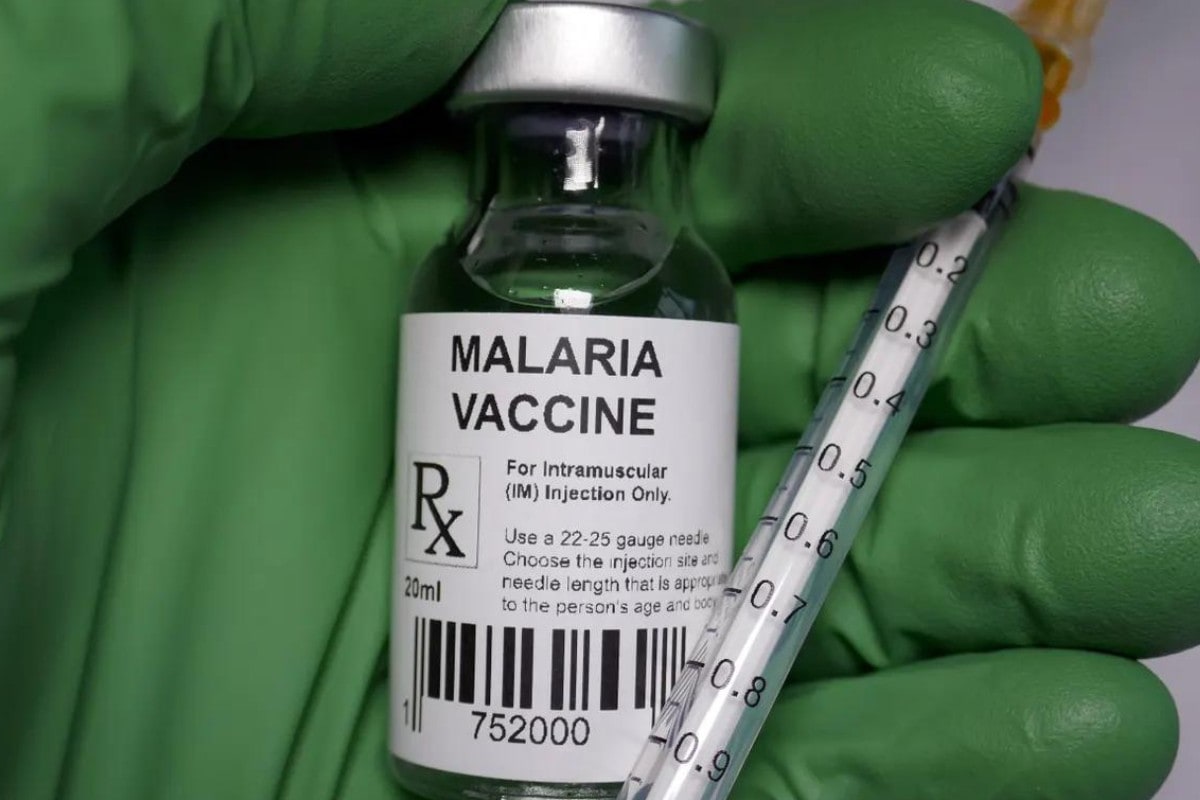
New Malaria Vaccine Introduced In 2023
In a monumental stride towards global health, October 2023 marked a historic achievement as the World Health Organization granted approval for a groundbreaking malaria vaccine—the second ever created against this potentially fatal disease. Priced at an affordable $2-$4 per dose, this significant development offers hope for millions in regions heavily impacted by malaria. With proven efficacy in reducing symptomatic cases by an impressive 75 percent after three doses within a year, the WHO anticipates the vaccine to be accessible to the public by mid-2024.
WHO Director-General Tedros Adhanom Ghebreyesus expressed profound joy, stating that the approval fulfills a longstanding dream for a safe and effective malaria vaccine, underscoring the profound positive shift in global health prospects. In summary, the WHO’s recommendation of the R21/Matrix-M malaria vaccine is a significant step toward creating a world where the burden of malaria is substantially reduced, children’s lives are saved, and communities experience improved health and well-being. Notably, children under 5 accounted for 80 percent of malaria-related deaths in Africa. Even in the United States, where malaria is less prevalent, approximately 2,000 cases are reported annually by the Centers for Disease Control and Prevention, predominantly contracted abroad.

Tennessee Lost Six Endangered Species
In a stark declaration of environmental distress, the U.S. Fish and Wildlife Service officially announced six types of mussels extinct in Tennessee, signaling a broader crisis for the nation’s biodiversity. The announcement, made on October 17, 2023, marked the removal of 21 species, including various birds, fish, bats, and mussels, from the Endangered Species Act. Tragically, these species had received protection under the ESA in the 1970s and 1990s, but their populations dwindled to the point of no return. Habitat fragmentation, a consequence of flood control structures, navigation, recreation, and hydroelectric power production, coupled with pollution from construction, mining, and farming, were identified as the primary culprits behind the mussels’ demise.
Among the extinct mussels were the Southern acornshell, the Upland combshell, the Green-blossom pearly mussel, the Tubercled-blossom pearly mussel, the Yellow-blossom pearly mussel, and the Turgid-blossom pearly mussel. Each species faced distinct threats, such as habitat modification, sedimentation, and water quality degradation, ultimately leading to their disappearance. Federal protection measures were deemed too late to reverse the decline, serving as a poignant reminder of the critical need for conservation efforts to safeguard imperiled species before irreversible consequences unfold. As these mussels vanish, so too does their vital role in filtering bacteria, algae, and pollution from local waterways, emphasizing the urgent necessity for responsible environmental stewardship in the face of escalating ecological challenges.

Disappearance Of The Java Stingaree
The year 2023 marked a somber milestone as humans witnessed the confirmed extinction of the Java stingaree, a marine fish declared extinct after over a century and a half of uncertainty. German naturalist Eduard von Martens first encountered this enigmatic species in 1862 during a Far East expedition, purchasing the sole specimen from a Jakarta fish market. Researchers from Charles Darwin University in Australia, led by Ph.D. candidate Julia Constance, recently declared the Java stingaree extinct after an exhaustive assessment for the IUCN Red List. This designation exposes the enduring impact of unregulated fishing and habitat loss, signaling a broader call to protect threatened marine species in years to come.
The Java stingaree’s disappearance unveils a stark reality about humanity’s influence on marine life. Once presumed inexhaustible, the seas now bear the weight of anthropogenic pressures, pushing species like the Java stingaree to extinction. The plight of this obscure fish reminds us that safeguarding marine biodiversity requires sustainable fisheries management and increased resources devoted to monitoring vulnerable species. As we confront the consequences of our actions, the extinction of the Java stingaree serves as a warning, urging global cooperation to ensure the longevity of our oceans’ resources.

India Passes China In Population
In a transformative shift during 2023, India surpassed China to become the world’s most populous country, boasting an estimated population of 1.43 billion people. This significant demographic change is poised to have far-reaching implications, as China experiences a decline in population and an aging demographic. Projections indicate that China’s population may diminish by 100 million by mid-century, coupled with a median age surge from thirty-nine to fifty-one. In stark contrast, India is anticipated to maintain its demographic momentum, with an estimated population reaching nearly 1.7 billion and a median age of thirty-nine by mid-century.
The dynamics of population growth and age distribution play a pivotal role in shaping a nation’s economic trajectory. Nations with youthful, expanding populations tend to exhibit more dynamic workforces, fostering increased consumption and, consequently, higher economic growth rates. As China grapples with the challenges posed by a shrinking and aging population, there is mounting pressure on the government to invest in social safety nets, potentially diverting resources from other critical priorities. Meanwhile, India’s demographic advantage has sparked discussions about a potential “demographic dividend,” with young workers driving economic growth.

Russia Damaged At Least 763 Heritage Sites in Ukraine Due To Conflict
In 2023 a disturbing chapter unfolded as human actions reverberated through the cultural tapestry of Ukraine. Russian forces, in a cruel display of conflict’s collateral damage, have left an indelible mark on the nation’s heritage. According to Ukraine’s Culture Ministry, a staggering 763 cultural sites in unoccupied regions have borne the brunt of the turmoil since February 24, 2022. The toll is heart-wrenching, encompassing 255 architectural landmarks, 185 historical sites, 19 monumental art sites, and 18 archaeological gems. However, these figures only scratch the surface, as the count excludes regions still under occupation or experiencing active hostilities, the Ministry noted.
International concern has been amplified by UNESCO, which reported that, as of July 26, 2023, 274 cultural sites fell victim to the full-scale invasion. Religious sanctuaries, museums, historical buildings, monuments, libraries — the casualties are varied and profound. The intentional destruction of Odesa’s historical center, a UNESCO World Heritage Site, has prompted discussions on the potential classification of such actions as war crimes, echoing sentiments acknowledged by the United Nations Security Council, where the Russian Federation holds a permanent seat. As the world grapples with the weight of these losses, 2023 stands as a poignant testament to the profound impact human actions can have on the cultural legacy of a nation.
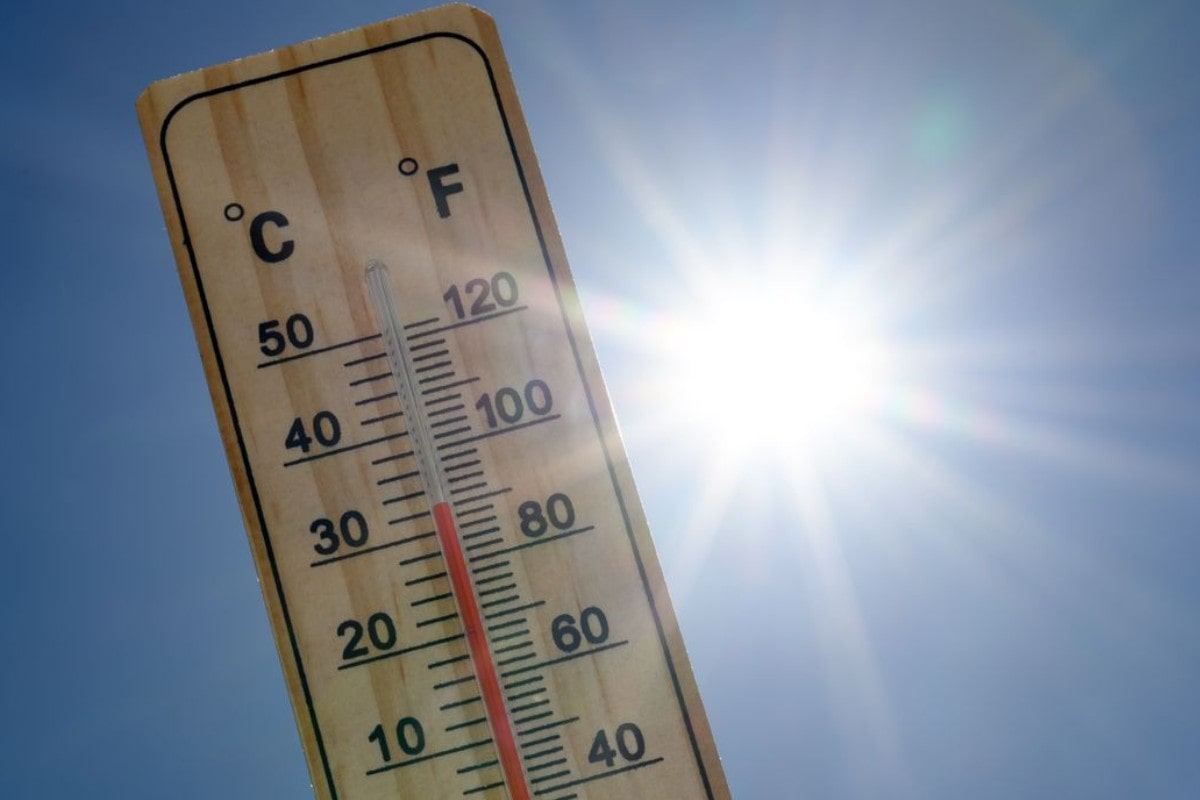
2023 Proved To Be Hottest Year On Record Thanks to Humans
The year 2023 has marked a pivotal moment in the ongoing battle against climate change, as the world grapples with the stark reality of its consequences. Recent data indicates that 2023 is poised to claim the dubious distinction of being the hottest year on record, surpassing temperatures not seen in the past 125,000 years. This unprecedented warming has unleashed a barrage of extreme weather events globally, from devastating wildfires and prolonged droughts to record-breaking floods. The phrase “wet bulb temperature,” once relegated to scientific discussions, has now entered common parlance, illustrating the lethal combination of high temperatures and humidity.
Despite the grim outlook, there are glimmers of hope on the horizon. Global investments in clean energy have skyrocketed, with the costs of wind and solar power continuing to decline. Hydrogen is emerging as a promising clean energy source, and innovative ventures to extract carbon dioxide from the atmosphere are becoming operational. However, skeptics raise concerns about the scalability of these technologies, especially in the face of rising fossil fuel production and emissions. Diplomatic efforts, such as the twenty-eighth Conference of Parties, have convened to discuss strategies and agreements. Yet, the glaring gap between talk and action shows the challenging road ahead, leaving humanity at a crossroads where catastrophic climate change looms ominously.
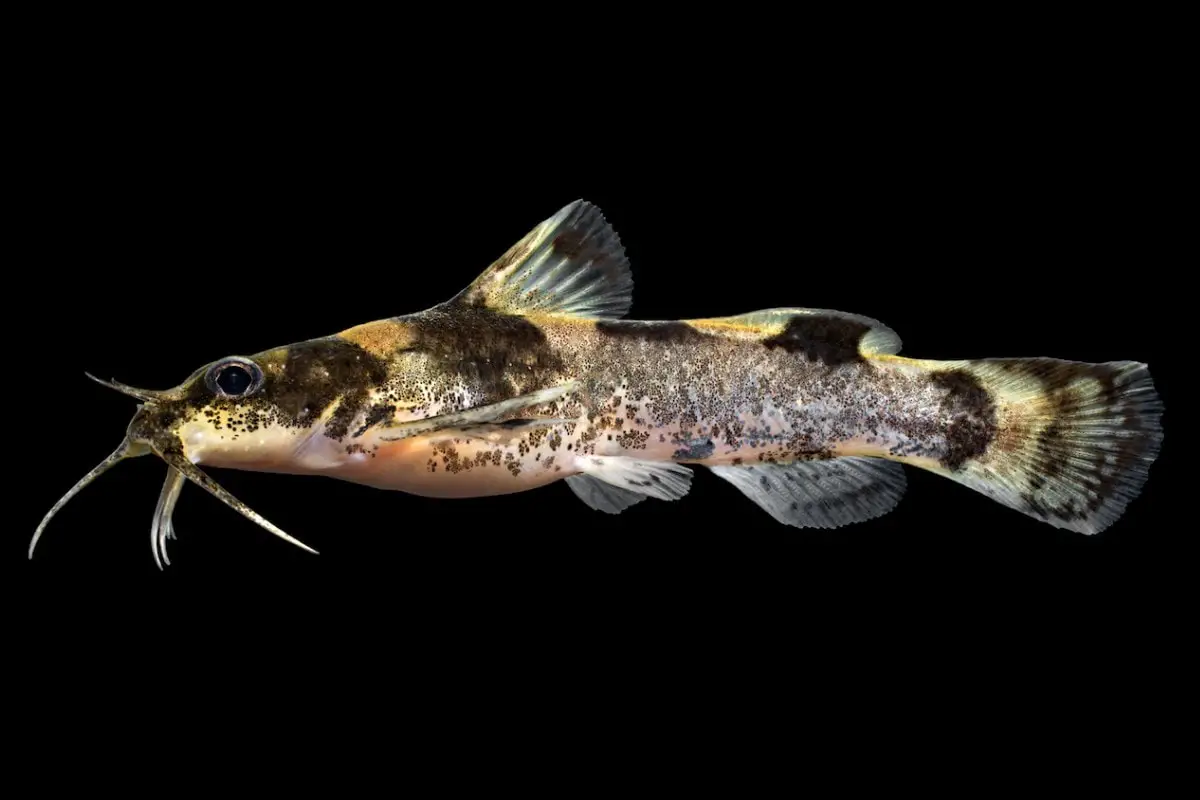
Scotio Madtom Declared Extinct
The year 2023 stands as a testament to both the triumphs and tribulations of human influence on the natural world. One poignant example of our impact comes from the recent declaration by the U.S. Fish and Wildlife Service, marking the extinction of the Scioto madtom, a once-vibrant species of catfish native to Ohio. This small, nocturnal creature, which prowled the depths of Big Darby Creek, has officially vanished, showcasing the delicate balance between progress and preservation. Despite the melancholy surrounding the Scioto madtom, 2023 also brought forward success stories in conservation.
Ohio’s endangered species protection laws, enacted in 1974, have played a crucial role in the recovery of various species, from the majestic trumpeter swans to the agile peregrine falcons. Governor Mike DeWine’s visionary H2Ohio initiative, launched in 2019, has further bolstered these efforts by restoring wetlands and enhancing water quality throughout the state. As our society grapples with the consequences of industrialization and habitat degradation, the delicate dance between progress and preservation becomes more crucial than ever. In the wake of this loss, we are reminded that every action, every law, and every initiative contributes to the narrative of our impact on the world—a narrative that, in 2023, continues to unfold with both challenges and triumphs.
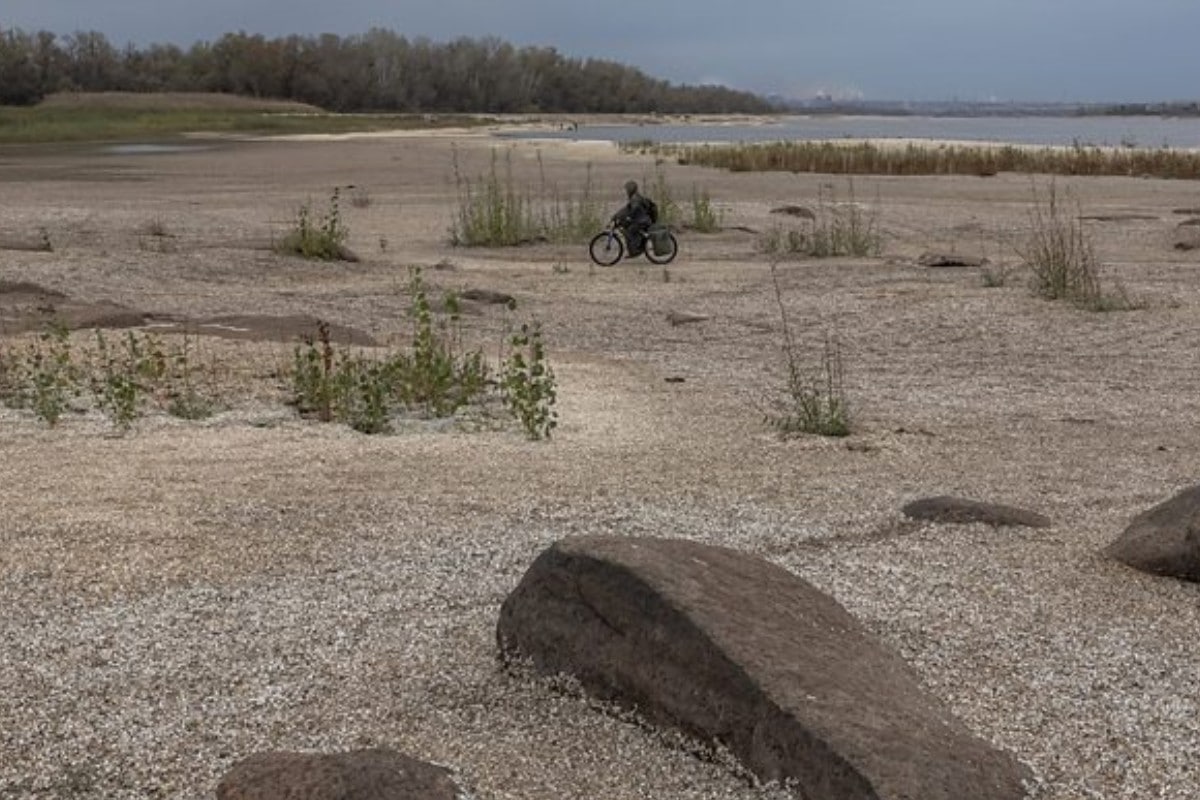
Human Wars Caused Ecological Disaster In Ukraine
On June 6, 2023, the world witnessed a seismic event that echoed beyond geopolitical borders – the intentional detonation of the Kakhovka Dam. It left in its wake a trail of environmental devastation along the Dnipro River. What ensued was not just a regional conflict but a paradigm-shifting episode that proved humanity’s profound ability to alter the Earth’s course. The allegations between Ukraine and Russia concerning the dam’s destruction cast a shadow over an ecological catastrophe that unfolded in the months following the explosions. The once-proud Kakhovka Reservoir, boasting record-high water levels before the deliberate breach, now stands almost desolate.
The United Nations Environment Programme labeled the aftermath as a “far-reaching environmental disaster” transcending Ukraine’s boundaries. The repercussions were as diverse as they were devastating. The reservoir, once a thriving ecosystem, succumbed to irreparable damage, while downstream flooding wreaked havoc on natural habitats and plant communities. The verdict from the UN Environment Programme was clear – the toll exacted by the dam breach was an indelible mark on our planet, an emblem of humanity’s profound and often irreversible impact on Earth’s ecosystems.
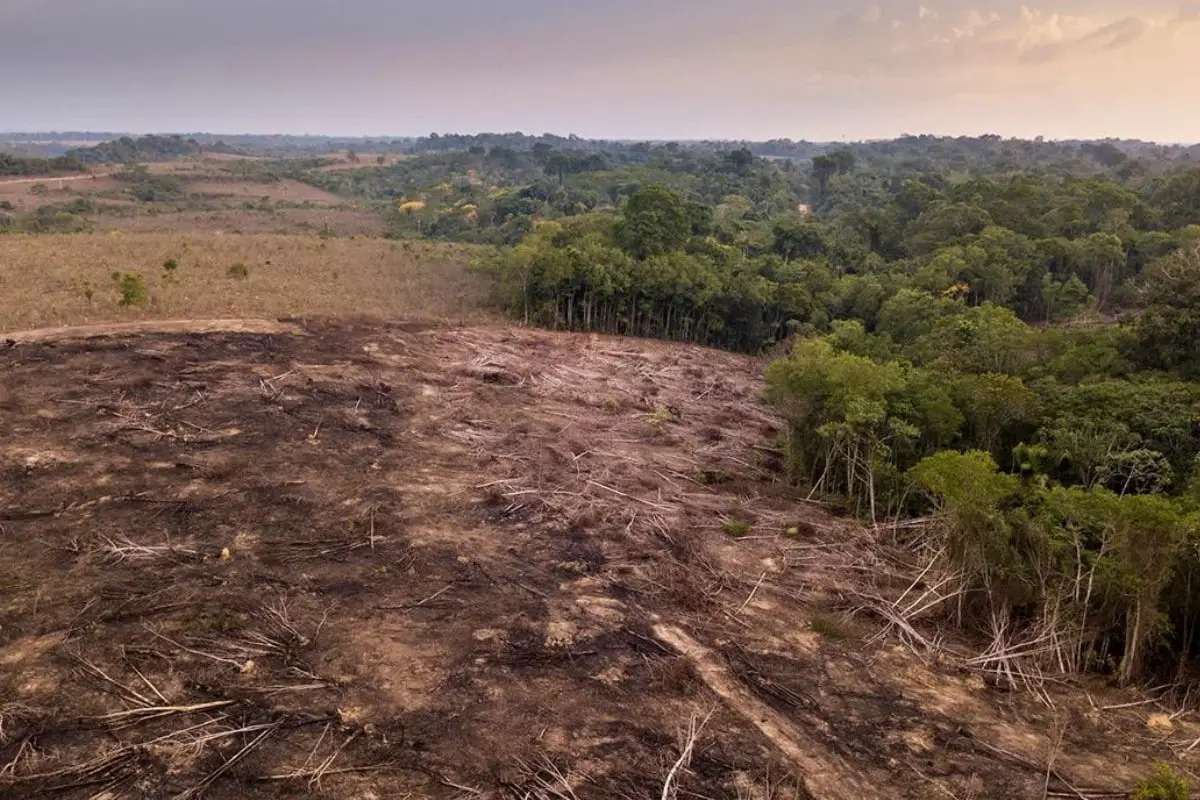
Earth Officially Failed Planetary Health Test
A groundbreaking scientific study published in the Science Advances journal delivered a sobering assessment of the state of Earth’s life-support systems. A team of 29 international experts conducted a comprehensive “health check” on the planet, revealing alarming findings that signal a departure from the safe operating space for humanity. The study, an extension of a 2015 report, identified that six out of nine critical “planetary boundaries” had been crossed due to widespread human interventions, pushing key safety limits to the brink. Among the concerning trends, the atmospheric concentration of carbon dioxide, the primary greenhouse gas, reached 417 parts per million, surpassing the established safe level of 350 ppm. Also, the rate of species extinction escalated to levels tens of times faster than the average rate over the past 10 million years, breaching the safe boundary for genetic diversity.
While the authors clarified that these boundary crossings do not signify an immediate collapse of human civilization, they cautioned about the potential for irreversible shifts in Earth’s support systems. The study sounded an urgent alarm on issues such as deforestation, excessive plant consumption for fuel, and the proliferation of manmade products like plastic and synthetic chemicals, emphasizing the unforeseen consequences of these human impacts. The researchers likened Earth to a human body, with planetary boundaries acting as vital signs. Lead author Katherine Richardson expressed concerns about humanity thriving under the looming threat of significant environmental alterations. As the world grapples with these stark realities, co-author Johan Rockström, director of the Potsdam Institute for Climate Impact Research, hoped that the findings would serve as a crucial wake-up call, urging immediate action to address the perilous trajectory that could lead to disaster.
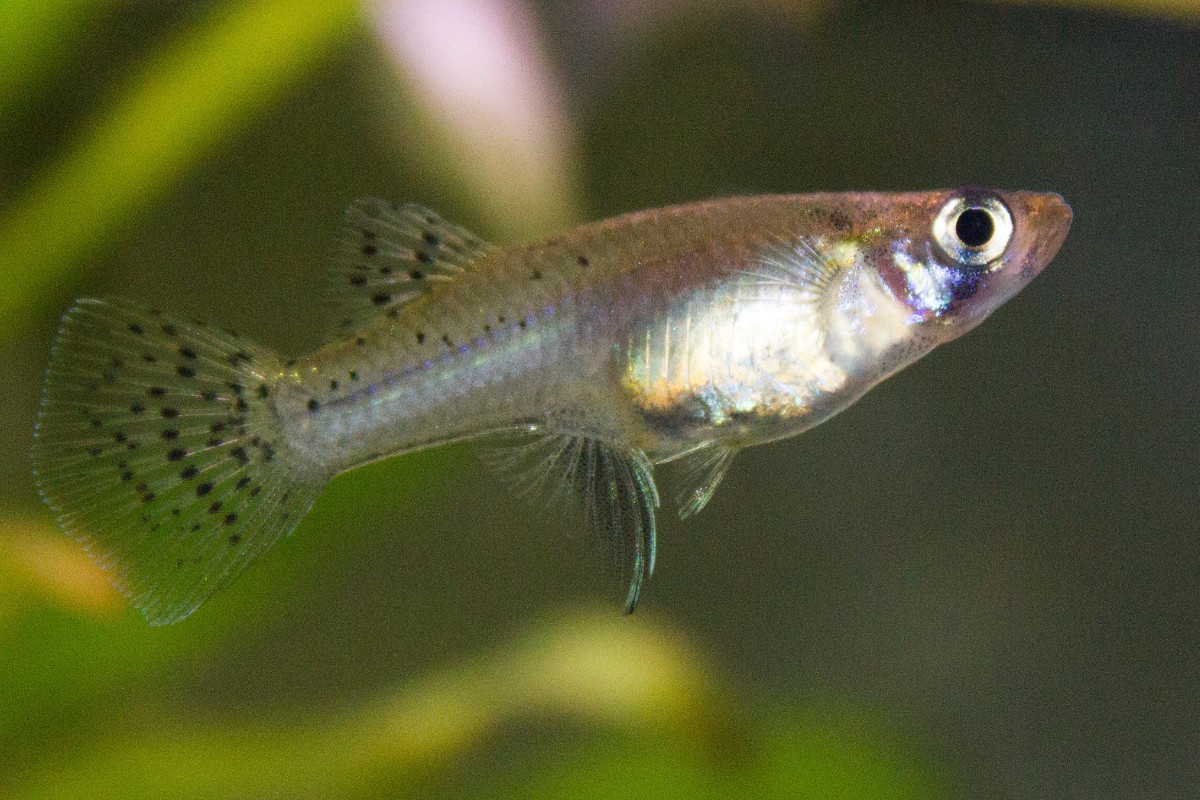
Tiny San Marcos Gambusia Declared Extinct
2023 marks the loss of the San Marcos gambusia, a once-vibrant aquatic species exclusive to the San Marcos River, bids farewell to existence. This tiny fish, measuring a mere inch and adorned with a distinctive dark stripe along its dorsal fin, has officially been declared extinct by the U.S. Fish and Wildlife Service. The removal of the San Marcos gambusia from the endangered species list exposes the irreversible consequences of over three decades of absence from its natural habitat. The journey towards extinction began in 1980 when the species was first labeled as endangered due to a myriad of threats, including habitat degradation and the cumulative impact of human activities.
Despite concerted efforts, the gambusia’s last sighting in the wild was recorded in 1983. Human-induced factors such as groundwater depletion, pollution from burgeoning urban centers, and the introduction of non-native species were identified as primary catalysts for its demise. This heart-wrenching loss unfolds against a broader backdrop of shifting ecological dynamics, as several other species, ranging from birds to mussels, also find themselves removed from the endangered list. As the ripple effect of human influence reverberates through ecosystems, the extinction of the San Marcos gambusia proves that our actions carry profound consequences.

2023 Was Record Year For Disease Elimination
In the realm of global health humanity etched its mark with unprecedented achievements in the fight against infectious diseases. A triumphant moment arrived as several nations celebrated their newfound status as malaria-free zones, with Azerbaijan and Tajikistan leading the charge in March, swiftly followed by Belize in June. These victories not only highlight the tenacity of national healthcare initiatives but also emphasize the power of international collaboration in realizing a future free from the burdens of malaria, a disease that disproportionately affects the most vulnerable populations worldwide.
Egypt stole the spotlight by clinching the coveted “gold tier” status in the race to eliminate hepatitis C, setting a historic precedent as the first country to reach this pinnacle. This remarkable turnaround is a testament to the nation’s resolve, as it emerged from a not-so-distant past grappling with one of the highest rates of hepatitis C infections globally. As part of a broader global health narrative, the year 2023 witnessed the elimination of neglected tropical diseases by 50 countries, aligning with the World Health Organization’s ambitious target of reaching 100 nations by 2030.

CRISPR Gene-Editing Becomes US FDA Approved
In a controversial twist of scientific achievement, 2023 stands as a beacon of change in the world of healthcare. CRISPR gene therapy marks a new era of hope for those battling sickle cell disease and beyond. The U.S. Food and Drug Administration etched history on December 8 by giving the nod to two revolutionary gene therapies, Casgevy and Lyfgenia, both harnessed from the Nobel Prize-winning CRISPR gene editing technology. Developed by Vertex Pharmaceuticals and CRISPR Therapeutics, Casgevy, and bluebird bio’s Lyfgenia mark the United States’ first treatments utilizing this cutting-edge genetic tool.
The significance of these therapies transcends their groundbreaking technology and extends into the realm of societal impact. Sickle cell disease, a painful and inherited blood disorder affecting a significant number, especially within the Black community, has historically faced overlooked and underfunded challenges. The FDA’s approval is not just a regulatory milestone; it is a testament to the tireless efforts to address medical conditions that have long been sidelined. In a year that will undoubtedly be remembered for its triumphs in genetic innovation, 2023 signifies a turning point where human ingenuity and compassion converge to change lives and reshape the landscape of healthcare as we know it.
Where Do We Find This Stuff? Here Are Our Sources:
Humans Actually Decreased Fossil-Fuel Dependency:
Eight Hawaiian Birds Now Officially Extinct:
A Shift Toward Less Violence:
Bat Native To Guam Declared Extinct:
Peace In The High Seas:
Vietnam Destroyed Coral Reefs To Expand Land:
A Major Win For Indigenous Rights:
Rare U.S. Songbird Officially Extinct:
New Malaria Vaccine Introduced In 2023:
Tennessee Lost Six Endangered Species:
Disappearance Of The Java Stingaree:
India Passes China In Population:
Russia Damaged At Least 763 Heritage Sites in Ukraine Due To Conflict:
2023 Proved To Be Hottest Year On Record Thanks to Humans:
Scotio Madtom Declared Extinct:
Human Wars Caused Ecological Disaster In Ukraine:
Earth Officially Failed Planetary Health Test:
Tiny San Marcos Gambusia Declared Extinct:
2023 Was Record Year For Disease Elimination:
CRISPR Gene-Editing Becomes US FDA Approved:

